Collecting rain water for drinking...
Jackie McCarty
20 years ago
Related Stories
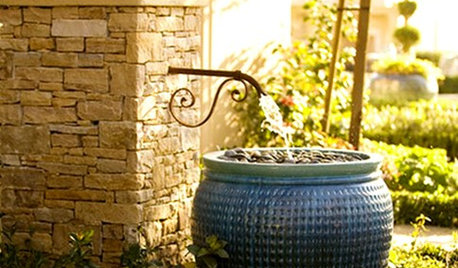
GREEN BUILDINGJust Add Water: Rain Barrel Magic
Take your rainwater storage from practical to beautiful with a new breed of design-friendly rain barrels
Full Story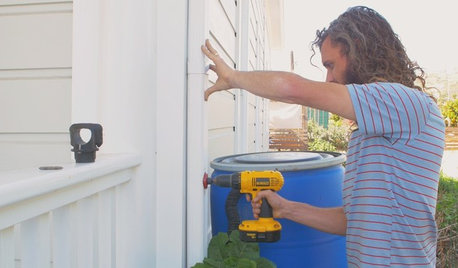
HOUZZ TVHouzz TV: How to Install a Rain Barrel
This DIY tutorial shows how easy it can be to capture rainwater from your roof to use in your garden later
Full Story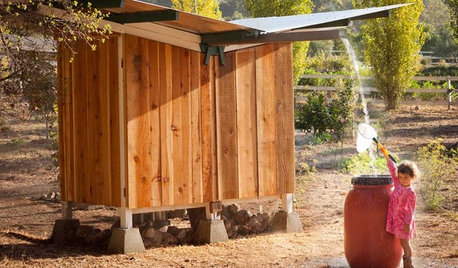
FARM YOUR YARDCollecting Rainwater and Eggs From a California Chicken Coop
See how a butterfly roof helps a hen home’s design soar into double-duty territory
Full Story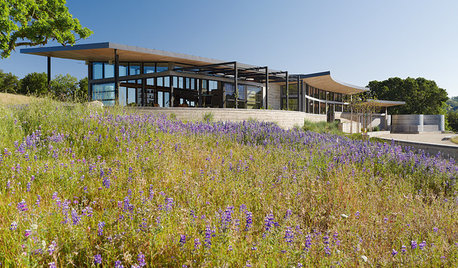
GREEN BUILDINGModern Design Captures Valuable Rain
Instead of letting a precious natural resource trickle away, these architectural features make the most of it
Full Story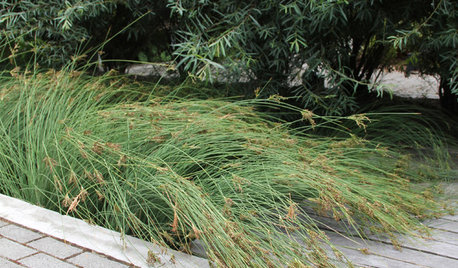
GARDENING GUIDESProtect a Precious Resource With a Rain Garden
Promote pure water and a beautiful landscape with a garden design that makes the most of the rain
Full Story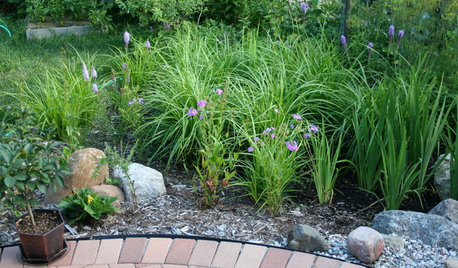
LANDSCAPE DESIGNHow to Site and Size a Rain Garden for Your Landscape
Installing a rain garden is an excellent way to reduce runoff and return water to its source
Full Story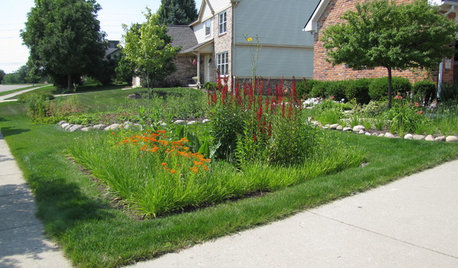
LANDSCAPE DESIGNHow to Shape a Rain Garden and Create the Right Soil for It
Learn how to grade, lay out and amend the soil in your rain garden to support your plants
Full Story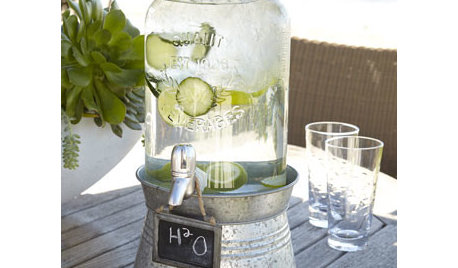
Guest Picks: We'll Drink to These!
Keep favorite summer drinks cold and at the ready with stylish holders and dispensers that are easy to take outside
Full Story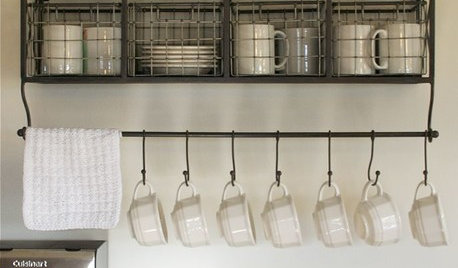
KITCHEN DESIGNHot-Drink Stations Hit the Spot
Beverage bars brimming with cocoa, tea, coffee and all the accoutrements make winter entertaining a delight
Full Story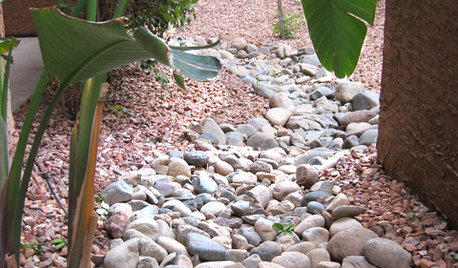
GARDENING AND LANDSCAPINGDry Riverbeds Solve Water Runoff
Spring rains don't have to lead to slides. Dry riverbeds redirect water runoff and add beauty to your landscape
Full Story





mudbugtx
tuanh
Related Professionals
Ballenger Creek Landscape Architects & Landscape Designers · Saint Louis Park Landscape Architects & Landscape Designers · Towson Landscape Architects & Landscape Designers · Edmond Landscape Contractors · Cudahy Landscape Contractors · Monterey Landscape Contractors · North Ridgeville Landscape Contractors · Riverhead Landscape Contractors · Setauket-East Setauket Landscape Contractors · Simpsonville Siding & Exteriors · Waterford Siding & Exteriors · Auburn General Contractors · Hamilton Square General Contractors · Parma General Contractors · Stillwater General Contractorscherig22
AEdl
miSago
kapi
premio53